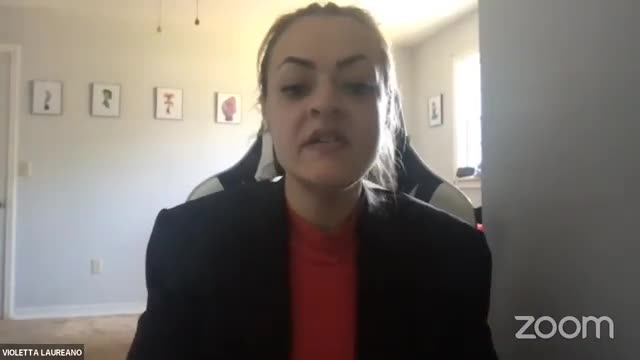Pardon Granted for Transformative Lives After Past Convictions
August 13, 2024 | Board of Pardons and Paroles, Departments and Agencies, Organizations, Executive, Connecticut
This article was created by AI summarizing key points discussed. AI makes mistakes, so for full details and context, please refer to the video of the full meeting. Please report any errors so we can fix them. Report an error »

In a significant session of the Connecticut Board of Pardons and Paroles held on August 13, 2024, several individuals were granted pardons, reflecting their transformative journeys and commitment to rehabilitation. The board reviewed multiple cases, highlighting the personal growth and community contributions of the applicants.
Among those granted pardons was Violetta Loriano, who shared her story of overcoming a troubled past marked by a felony conviction in 2016. Since then, Loriano has achieved an associate's degree, maintained sobriety, and secured employment at a federally qualified health center, where she assists underinsured patients. Her application emphasized the importance of the pardon for her career advancement and ability to provide for her children.
Mongo Coleman, another successful applicant, detailed his transformation after a long criminal history. Now a salary manager at Dollar Tree, Coleman has been crime-free for over a decade and seeks a pardon to further his career and support his family, including an autistic son and grandchildren.
Julio Pagan, who faced charges from the 1990s, was also granted a pardon. His attorney highlighted Pagan's commitment to community service and his stable family life, emphasizing the positive changes he has made since his youth.
The board also heard from Robert Valette, who has been out of trouble for over a decade and is seeking a pardon to improve his employment opportunities. His application was supported by his successful career in state employment.
In a more contentious case, Augustin Vasquez was denied a pardon following a powerful victim impact statement from the family of a murder victim, underscoring the lasting pain caused by his actions. The board expressed concerns about the timing of his application, given the severity of his past offenses.
Other notable cases included Reginald Bell, who has been sober for over a decade and actively participates in community service, and Glenn Otero, who has turned his life around after a troubled youth and is now a truck driver.
The board's decisions reflect a commitment to recognizing the efforts of individuals who have demonstrated significant personal growth and a desire to contribute positively to society. Each granted pardon serves as a testament to the potential for rehabilitation and the importance of second chances in the justice system.
Among those granted pardons was Violetta Loriano, who shared her story of overcoming a troubled past marked by a felony conviction in 2016. Since then, Loriano has achieved an associate's degree, maintained sobriety, and secured employment at a federally qualified health center, where she assists underinsured patients. Her application emphasized the importance of the pardon for her career advancement and ability to provide for her children.
Mongo Coleman, another successful applicant, detailed his transformation after a long criminal history. Now a salary manager at Dollar Tree, Coleman has been crime-free for over a decade and seeks a pardon to further his career and support his family, including an autistic son and grandchildren.
Julio Pagan, who faced charges from the 1990s, was also granted a pardon. His attorney highlighted Pagan's commitment to community service and his stable family life, emphasizing the positive changes he has made since his youth.
The board also heard from Robert Valette, who has been out of trouble for over a decade and is seeking a pardon to improve his employment opportunities. His application was supported by his successful career in state employment.
In a more contentious case, Augustin Vasquez was denied a pardon following a powerful victim impact statement from the family of a murder victim, underscoring the lasting pain caused by his actions. The board expressed concerns about the timing of his application, given the severity of his past offenses.
Other notable cases included Reginald Bell, who has been sober for over a decade and actively participates in community service, and Glenn Otero, who has turned his life around after a troubled youth and is now a truck driver.
The board's decisions reflect a commitment to recognizing the efforts of individuals who have demonstrated significant personal growth and a desire to contribute positively to society. Each granted pardon serves as a testament to the potential for rehabilitation and the importance of second chances in the justice system.
View full meeting
This article is based on a recent meeting—watch the full video and explore the complete transcript for deeper insights into the discussion.
View full meeting
